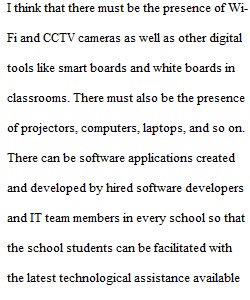


Q The digital age continues to spark creative developments in education. Wireless devices are now common in the typical American classroom. But while technology is helping thousands of students reach new heights in their education, many others are falling behind. Labeled "the homework gap" by researchers, students without the use of reliable Internet access at home find it harder to complete and submit homework assignments, further expanding the inequality already seen in low-income communities. With many educators pushing for students to use resources on the Internet with class work, stating: “We try to accommodate those without access in every way we can, but we can’t hold back on our use of technology in the classrooms because we have to prepare our children for the world that is waiting for them..." the federal government is now grappling with a stark disparity in access to technology, between students who have high-speed Internet at home and an estimated five million families who are without it and who are struggling to keep up. The challenge is felt across the nation. Some students in Coachella, California depend on school buses that have free Wi-Fi to complete their homework. The buses are sometimes parked in residential neighborhoods overnight so that children can connect and continue studying. Keith Krueger is the CEO of Consortium for School Networking (CoSN) a nonprofit professional association for education technology leaders. He strongly believes the homework gap is a major issue that needs to be addressed all around the world. "Teachers expect that students can do their homework from home, which requires Internet. While many low-income students [in the United States] have a phone, it typically is on a data plan. Imagine trying to write your senior thesis or apply for college on a smartphone using WiFi at a McDonald's," says Kreuger. Innovative solutions like the WiFi school buses are crucial in helping to end this divide, says Kreuger. Innovations to bridge the homework gap might even help create more equal societies. As Kreuger puts it: "This is today's civil right -- ensuring that all students have access to equal educational opportunity in a digital world." Reference: http://www.cnn.com/2017/10/31/tech/homework-gap/index.html
View Related Questions